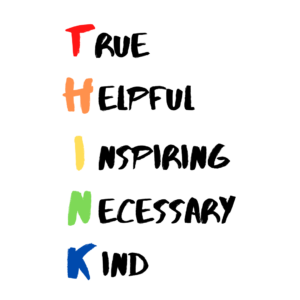Having effective communication skills is highly regarded by employers in the workplace. While not always easy, understanding how to engage with others in a genuine and meaningful way is critical to building lasting relationships, increasing team happiness, and strengthening teamwork and trust. Mastering these skills will help you create better working relationships and improve outcomes for you and the business.
 When you are job seeking, you tend to find that job ads stipulate they are looking for someone who is collaborative, can work within a team environment, and has excellent communication skills. This is a skill set that employers look for in their staff to avoid miscommunication, confusion, and disruption in the business.
When you are job seeking, you tend to find that job ads stipulate they are looking for someone who is collaborative, can work within a team environment, and has excellent communication skills. This is a skill set that employers look for in their staff to avoid miscommunication, confusion, and disruption in the business.
When we think about communication in the workplace, this includes reading, writing, talking, and listening, and it happens in different ways. From face-to-face conversations, including verbal and non-verbal communication and talking over the phone, to communication via emails, video conferencing, and work management software tools, you need to be clear on the best way to communicate and be adaptable to suit the situation and your audience.
The key to effective communication is knowing how and when to communicate and adjusting your communication content and style to align with your audience.
Elements of Good Communication in the Workplace
Late last year we presented to a large group of secondary students on the topic of “Communication in the Workplace”. Prior to the presentation, we carried out a little exercise and asked each of our staff members at Key Business Advisors what their number one tip for effective communication would be. This way we had real industry information to share with our audience.
Here are our 8 tips to help improve your communication skills:
1. Be Clear and Concise
Whether you’re sending your message via email, or face-to-face, aim to communicate your message with precise language to get your point across.
2. Be Open and Honest
Being open and honest with your communication will help build strong teams and trust with your colleagues.
3. Take Note of your Body Language and Tone of Voice
How you say something, the expression on your face, the body language you display, and when you say things can often have a greater impact than the actual words you are expressing.
4. Be Mindful of How your Communication is Received
Think about what you say, the words you use and their possible effect on your listener. This is about being considerate and showing empathy.
5. Listen
Listening is a form of communication and is just as important as talking. Listen to what the other person has to say and try to understand their ideas and their points of view. The conversation should be a 2-way communication.
6. Talk to Avoid Miscommunication
Text messages and emails can sometimes be misread. Follow-up with a conversation. Talking face-to-face or over the phone can often avoid miscommunication.
7. Be Calm
The ability to stay calm when communicating in all situations is a powerful and effective tool.
8. Check for Understanding
Check on the understanding of the person you are communicating with, and in the same way, if you don’t understand, speak up. Ask questions to clarify.
In our workplace, we have a framed print hanging in the kitchen area with the word THINK. The letters make an acronym that goes like this:
Before speaking, THINK. Are your words:
True, Helpful, Inspiring, Necessary, Kind


We hope this THINK Acronym is easy to remember and applies whether you’re communicating in the workplace or outside of work with your family and friends.
For more industry tips to help you with your job-readiness skills, check out Keyba Careers’ online training program!

